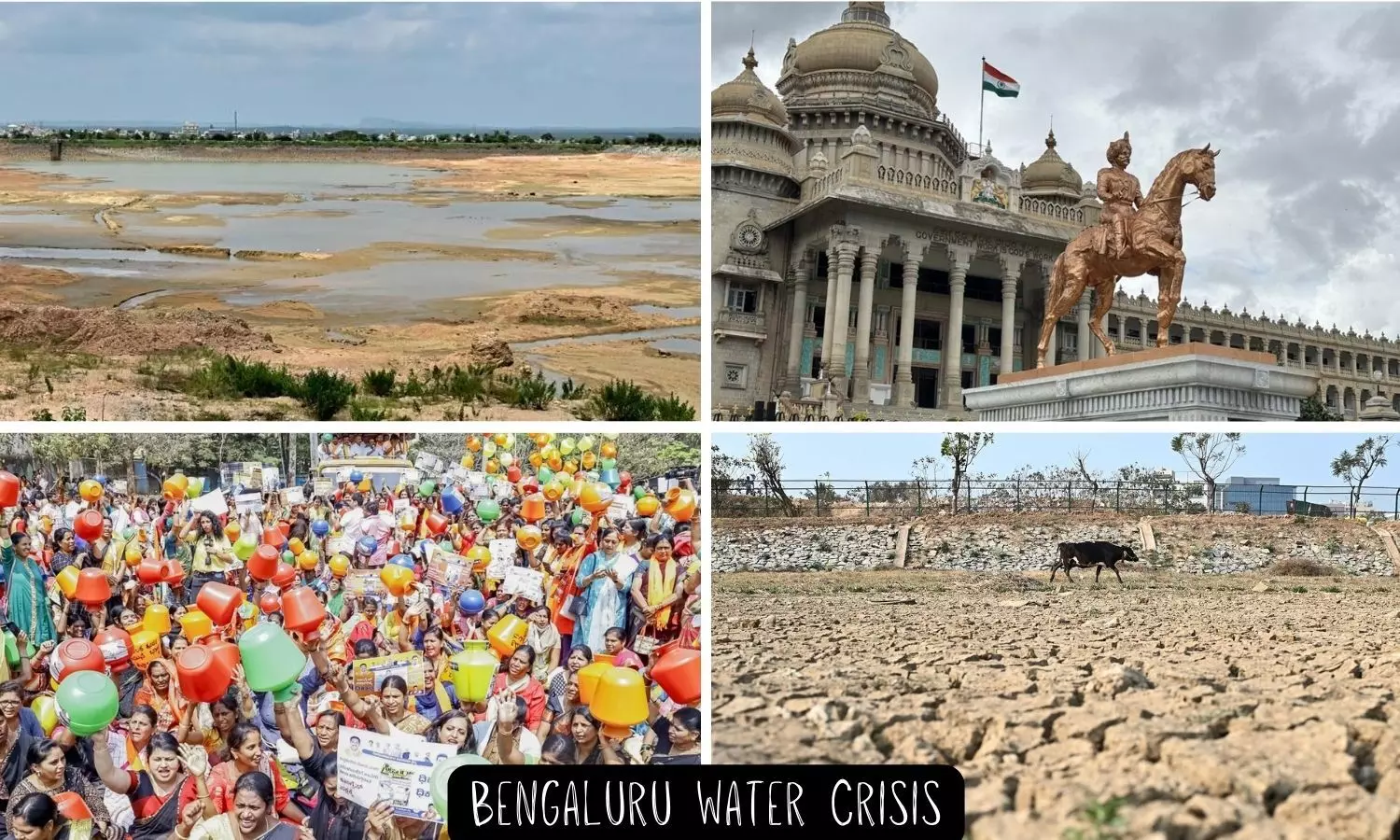Continued mismanagement of water in Bengaluru could surpass Cape Town's crisis, warns TV Ramachandra
Bengaluru's water crisis worsens due to depleted Cauvery and groundwater. Dr. T.V. Ramachandra suggests environmental awareness, rainwater harvesting, and lake restoration to mitigate.
image for illustrative purpose

Bengaluru: Bengaluru is facing a big water problem. Both the Cauvery River and underground water sources are drying up, affecting everyone from industries to regular people in the city. Dr. T.V. Ramachandra from the Indian Institute of Science in Bengaluru spoke to The Indian Express about why this crisis is happening and how it's getting worse.
He says 40% of Bengaluru's water comes from underground and 60% from the Cauvery River. But because of deforestation and climate change, the Cauvery basin can't hold water like before, and there's not enough rain to make up for it. This highlights the critical issue of water mismanagement in Bengaluru and its consequences.
TV Ramachandra's warning about the water crisis in Bengaluru explains that groundwater disappears when we don't let it refill naturally. Bengaluru used to have lots of trees and lakes, but now there are very few. Less greenery means less water gets soaked into the ground. In the 1800s, Bengaluru had 1,452 lakes and 80% green cover. Now, it's down to 193 lakes and less than 4% green cover.
He warns that if Bengaluru doesn't manage its water better, the situation could be worse than what Cape Town faced. This comparison of Bengaluru's water situation with Cape Town emphasizes the urgency of addressing the issue effectively. He blames mismanagement by the Bengaluru Water Supply and Sewerage Board (BWSSB) for making things worse.
Dr. Ramachandra suggests solutions like making people more aware of the environment, collecting rainwater, and fixing lakes. He says fixing lakes like Sarakki and Puttenahalli has already helped raise the water level in the ground.
He also advocates for improved wastewater treatment in Bengaluru to enhance water availability. These initiatives address the Challenges faced by Bengaluru in conserving water resources, highlighting the importance of addressing them effectively.
He critiques the Bengaluru Water Supply and Sewerage Board's reactive and unproductive actions, asserting the necessity of appointing more knowledgeable individuals. Dr. Ramachandra advocates for government control over water distribution, emphasizing the urgency of addressing water mismanagement in Bengaluru.
He also talks about using technology like Artificial Intelligence to monitor water quality and detect leaks. He believes this could help Bengaluru manage its water better in the future and alleviate the impact of urban development on water resources in Bengaluru.

